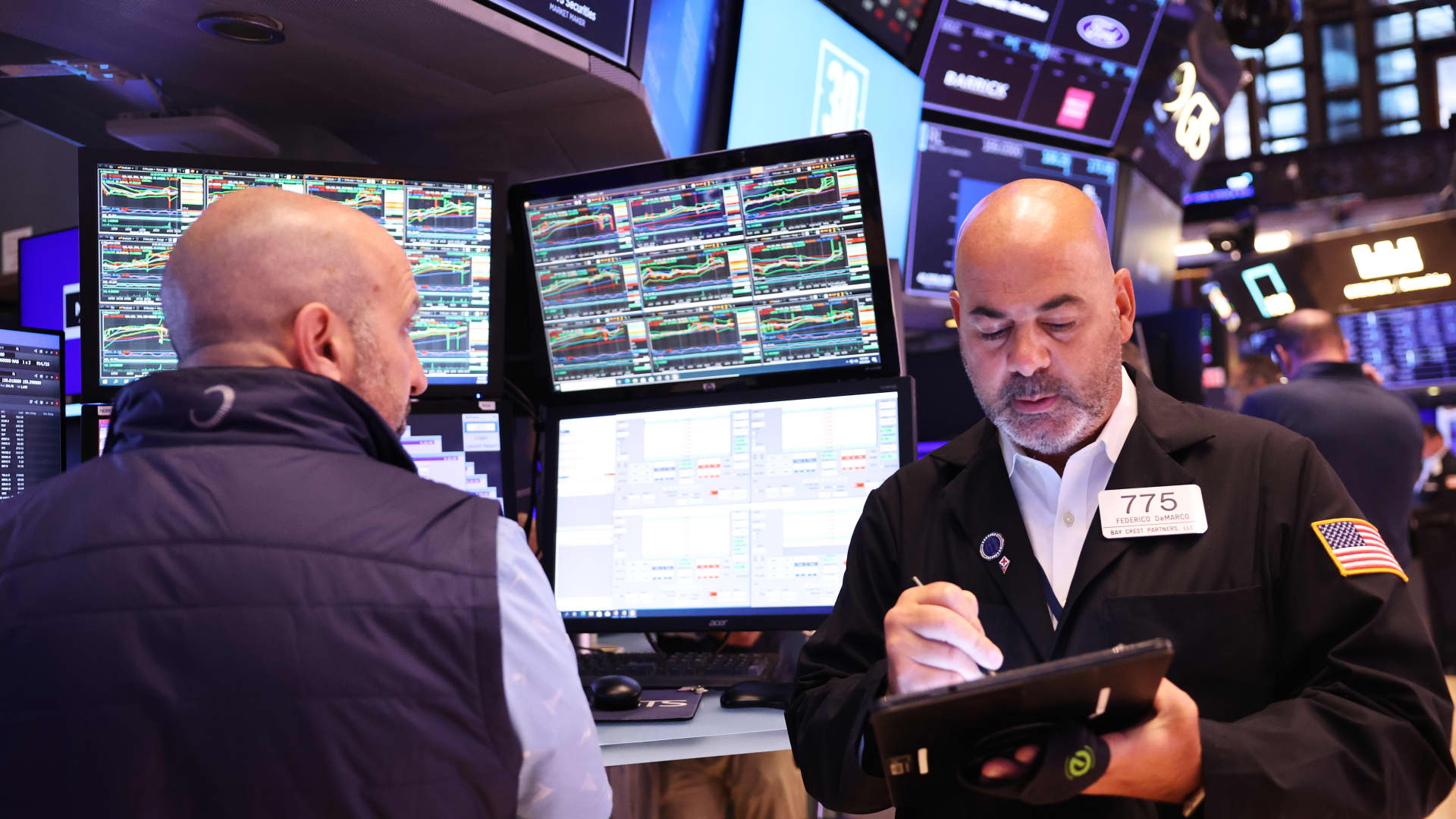Hedge funds and mutual funds â two of the biggest investor groups â piled into a handful of the same stocks last quarter in anticipation of changing market leadership and higher volatility, according to Goldman Sachs. The Wall Street bank analyzed the holdings of 693 hedge funds with $2.8 trillion of gross equity positions as well as the holdings of 554 mutual funds with $3.7 trillion of equity assets at the start of the third quarter, based on regulatory filings. It then compiled the “Hedge Fund VIP basket,” consisting of 50 stocks that most frequently appear among the largest 10 holdings of hedge funds, and the “Mutual Fund Overweight basket,” consisting of 50 stocks in which mutual funds are the most overweight. Goldman found that there were eight “shared favorites” among hedge funds and mutual funds last quarter. These shared favorites have rallied 17% year to date, in line with the broader market. The overlap between hedge fund and mutual fund favorites has a history of outperformance. This basket has beat the S & P 500 in 61% of months since 2013 by an annualized of 3 percentage points, Goldman said. The list includes credit card giants Visa and Mastercard and building material company CRH . Notably, Third Point’s Dan Loeb owned Dublin-based CRH and said he’s bullish on companies in the “physical world” with attractive prices. Health-care name UnitedHealth and insurer Progressive were also loved by both hedge funds and mutual funds. Insurance stocks are on a roll as of late as their profit outlooks normalize â and even improve in some cases â as the effects of the Covid-19 pandemic fade. Overall, hedge funds and mutual funds trimmed exposure to winning megacap technology names by the end of the second quarter. Goldman found that the weight of the so-called Magnificent Seven stocks declined in hedge fund long portfolios for the first time since 2022. Mutual funds also turned more bearish on these tech stocks, becoming more underweight in their portfolios. The shift in their positioning helped buffer the effects from the summer sell-off in these Magnificent Seven stocks. Meanwhile, these two cohorts of investors increased their allocation to health care, which offers defensiveness and growth mostly unrelated to the artificial intelligence boom, Goldman said.

